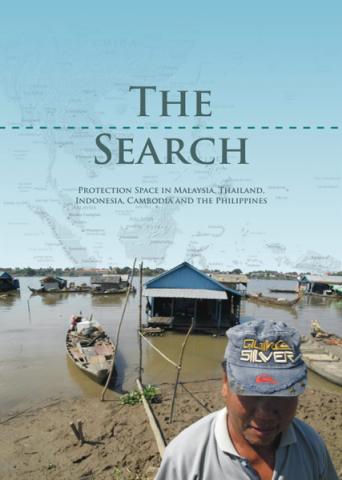Jesuits and collaborators working with migrants and refugees in Asia Pacific gathered in Manila recently to share insights and ideas for co-operation among the migrant ministries within the Conference.
The two-day meeting organised by the Jesuit Conference of Asia Pacific was held on June 30 and July 1, in conjunction with a migration conference, “Migration, Religious Experience and Mission with Migrants in Asia”, organised by the Loyola School of Theology and the Scalabrini Migration Center.
This is the second time the migration network has met since migration was identified as a common priority for the Conference in July 2010.
One of the key observations of this meeting was the increasing connection between migrant ministry and refugee work; and the importance of closer coordination to address their concerns.
Migrant work at the province level also needs to be strengthened, and some practical areas of project collaboration were explored. One possibility that was discussed is for UGAT Foundation, the established migrant centre in the Philippines, to assist with the setting up of migrant ministries elsewhere in the Conference, particularly in sending countries.
Fr Denis Kim SJ, the JCAP Social Apostolate Coordinator, said that the meeting re-emphasised the need for a migration coordinator at the Conference level and this point was made to the major superiors at their July Assembly.
The group of 23 participants from 10 countries – Indonesia, Korea, Philippines, Taiwan, Thailand, Malaysia, Singapore, Australia, Vietnam and Cambodia – also explored greater collaboration between the migrant ministries and Jesuit Refugee Service.
Nikola Errington, Legal Officer of JRS Cambodia, found the meeting a great exchange of experiences, stories and reflections and said it was a perfect forum to reflect upon the common elements that bind the work of JRS and the migrant ministries.

Nikola said the JRS was able to contribute the point of view of refugees, a distinct group that has particular protection needs because they cannot return to their home country. The JRS teams gave examples of the risks refugees are exposed to because they often remain undocumented or are not seen as different from migrants in the eyes of a State. Also discussed was the importance of identifying refugees within the context of broader mixed migration flows.
At the end of the meeting, the group took the opportunity to update the network contact list to encourage and facilitate cooperation especially on cases that cross national boundaries.
Caption for main photo: An illustration from Dr Maryanne Loughry, RSM AM of JRS Australia showing the increasing numbers of asylum seekers arriving by boat in Australia so far this year.






